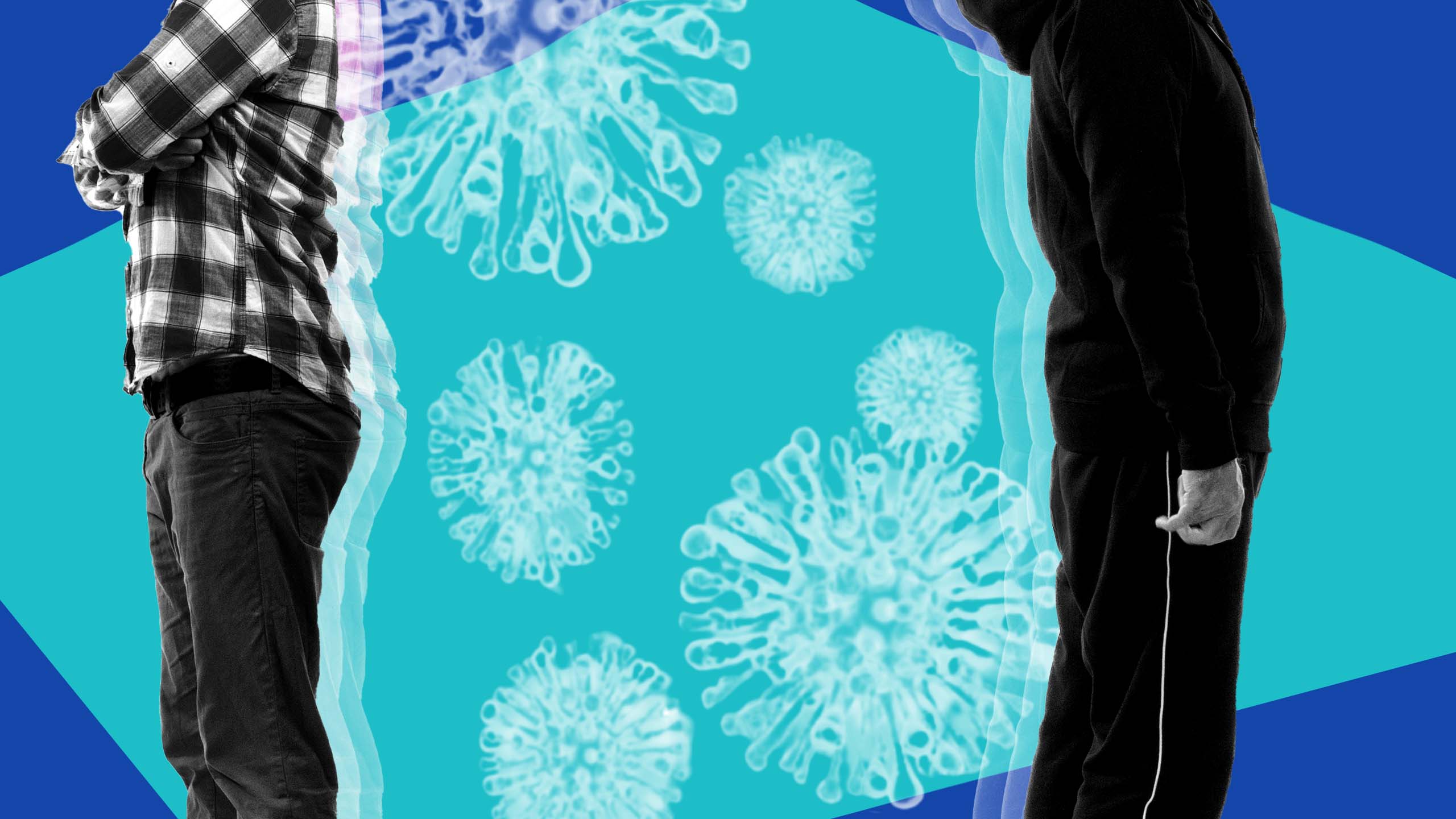Almost 50 percent of queer men in the United States have decreased their sexual activity, citing mpox, according to a recent survey
Conducted online from August 5 to 15, a survey from the Centers for Disease Control (CDC) found that 48 percent of respondents reported reducing their number of sexual partners in light of the outbreak. Additionally, 49 percent said they’d reduced sexual activity with men met through dating apps, while 50 percent said they were having fewer one-night stands.
Although mpox can affect anyone who has contact with an infected person, the virus—which has seen 47,652 cases across the globe—has disproportionately been affecting men who have sex with men (MSM). A study published in the New England Journal of Medicine in June showed 95 percent of 528 confirmed cases to have been transmitted during gay sex. And earlier this month, the CDC reported that men who take PrEP or are HIV-positive are most at risk of contracting the disease.
Dubbed a “global health emergency” by the World Health Organization on July 23, mpox has been spreading rapidly across North America. There have been 17,000 recorded cases across all 50 states in the U.S. and more than 1,228 in Canada, the majority of which were found in Ontario and Quebec. However, vaccine rollouts across the continent have been poor, leading to a growing concern in both countries about government efforts being made to prevent the virus from spreading to communities facing a higher risk of contraction.
“You begin to wonder, is gay men’s health not a priority?” Halifax resident Jim Mohr told CBC News earlier this week.
In Canada, stretched supplies and a lack of clarity regarding the number of available vaccines have become a concern for citizens, with 53 percent of Canadians saying they were worried about the outbreak according to a Narrative Research survey. After Nova Scotia reported its first case on August 23, representatives from local health organizations penned an open letter, asking the province for greater communication, as well as a greater access to vaccines and financial support for residents who are isolating.
“There’s a picture of a lack of clarity as to who’s eligible and the vaccination process itself is quite limited,” Kerry Bowman, an assistant professor in the Temerty Faculty of Medicine at the University of Toronto, told CTV News earlier this month.
U.S. Health and Human Services secretary Xavier Becerra announced plans to stretch the mpox vaccine in early August, with each vial generating five vaccinations. The plan has proven to be problematic, with local health officials reportedly struggling to extract the necessary number of doses from each vial. There has also been a growing concern with how much further the outbreak is stigmatizing queer men, as the LGBTQ2S+ community continues to see an uptick in homophobic and transphobic rhetoric across the country, which has been fuelled in part by public figures.
Following the first confirmed mpox cases among children, activists worry that stigma could fuel conspiracies about LGBTQ2S+ grooming. “In a few months from now, on the front of every magazine will be children with mpox on their face. And they’ll blame us for this,” activist Mordechai Levovitz said, as per HuffPost in July. “It is only our anger that will protect us.”


 Why you can trust Xtra
Why you can trust Xtra


